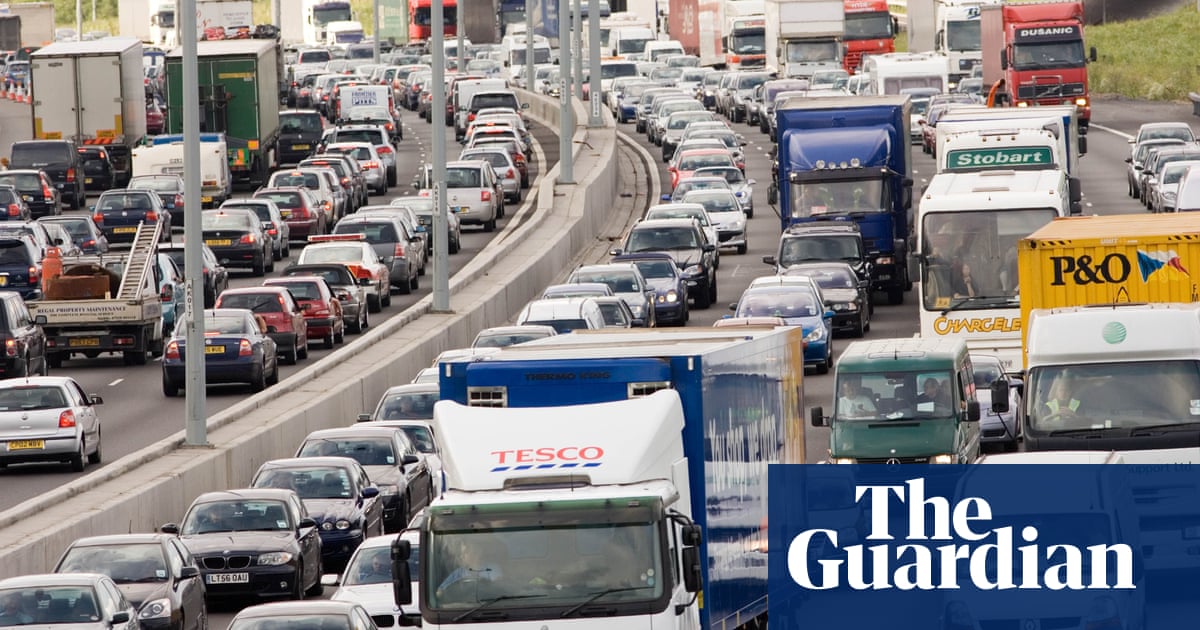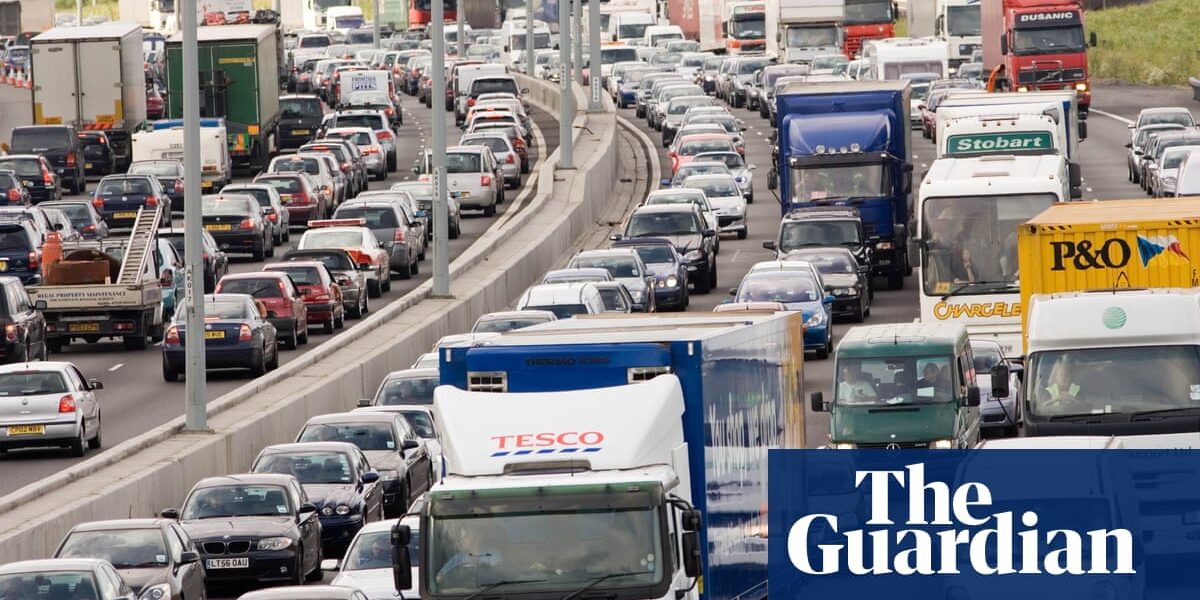Environment campaigners say that roads in the UK are being constructed without any oversight from government ministers.

Environmental activists have obtained freedom of information requests revealing that road projects funded by the government, amounting to £500m, are being constructed without proper supervision from ministers and may be using outdated emissions goals.
Campaigners claim that National Highways, the organization responsible for road construction in England, has been granted the ability to evaluate its own performance without government review. This includes the economic justification for new projects.
According to critics, National Highways is potentially creating a harmful situation by advancing projects with limited transparency, prioritizing the interests of road constructors and neglecting current environmental and economic considerations.
The allegation arises as the high court examines three road projects in Norfolk, collectively valued at up to £500m, in an ongoing disagreement over the potential environmental effects of these initiatives.
A lawsuit filed by Dr. Andrew Boswell, a local environmental activist, and backed by television host Chris Packham and former government adviser David King, alleges that National Highways has proceeded with projects using inadequate emission standards that contribute to climate change and damage the nearby environment.
Boswell has utilized crowdfunding to initiate a legal examination of how emissions are determined during the planning process, specifically in regards to whether they reflect the overall increase throughout the network rather than solely focusing on the specific location where a road is constructed or expanded.
The decision, anticipated to be made in March, has the potential to set off a chain of lawsuits organized by advocates throughout the nation, including a challenge by the Campaign to Protect Rural England (CPRE) against a project to construct A57 link roads across the Pennines, with the goal of enhancing travel between Manchester and Sheffield.
According to the CPRE, the plan would cut through the Peak District, causing harm to the green belts surrounding both cities, despite the existence of other options.
Boswell stated that the Stonehenge tunnel plan may be abandoned if the court of appeals ruled that stricter emissions standards must be enforced. This is due to the consideration of emissions from increased traffic on the A303 between Surrey and Devon, rather than just emissions at the Stonehenge location.
The National Highways agency has faced criticism in recent years for being unclear about its operations.
The government organization faced allegations of a “systemic failure” in regards to providing for cycling last year. This was brought to light through freedom of information requests which showed that the agency was unaware if its infrastructure met its own design standards.
Although £84m has been allocated to 160 projects focused on cycling and walking since 2015, the agency has acknowledged that it is unable to specify where the funds were allocated or the effects on cycle usage and safety.
The Department for Transport (DfT) oversees several costly projects, including the A30 widening in Cornwall, which costs £230m. However, National Highways has the authority to assess and potentially carry out these projects without following the most recent environmental regulations.
According to the Transport Action Network (Tan), requests for information revealed that the Department for Transport (DfT) was not thoroughly examining the final business case (FBC) for projects valued at less than £500m. This lack of scrutiny meant that over a dozen projects could receive planning approval without ministerial consideration of their impact on the environment.
According to a letter of complaint sent to the National Audit Office, a FBC (full and final economic case) must be reviewed and approved before planning consent is granted.
”
The decision to grant consent for examinations and the secretary of state is based on an outdated outline business case, which may be several years old.
Ignore the advertisement for the newsletter.
after newsletter promotion
It is possible that the secretary of state is using incorrect information to make crucial legal decisions regarding planning approval, resulting in a distorted understanding of the advantages and disadvantages of the project.
According to Rebecca Lush, a campaigner for road and climate issues at Tan, the current situation allows the DfT to grade their own work and work in secrecy, despite the fact that this is costing taxpayers millions of pounds and costs are constantly rising.
She stated that the government must have more control over National Highways to guarantee that they provide good value for taxpayers instead of reducing it.
Steve Gooding, the director of the RAC Foundation, expressed concerns about the transparency of road construction projects in England. According to him, while the cost-benefit ratio determined by economists is a significant factor, it is not the only consideration when making decisions about road investments. He believes that those examining road business cases should also carefully evaluate the reasoning and accuracy of the various estimates and assumptions used in these calculations. Gooding, who previously served as the director of roads at the Department for Transport, called for greater transparency in this process.
Lush claimed that Tan encountered a lack of cooperation when attempting to gather information about the reasoning behind decisions. She suggested that the National Audit Office should conduct an investigation into how plans were being implemented without the involvement of government officials.
Despite the spending of billions of pounds in public funding, there is a lack of accountability and transparency. This left us questioning what was being concealed.
A representative from the Department for Transport (DfT) stated that there are strict measures in place to ensure efficient supervision and management. These measures were implemented in 2015, which resulted in 18 Tier 2 projects with a value of up to £500m being monitored by National Highways.
The Office for Rail and Road monitors the National Highways, and it is overseen by an independent organization and reviewed by parliament.
National Highways announced that the DfT would be authorized to respond on its behalf.
Source: theguardian.com


